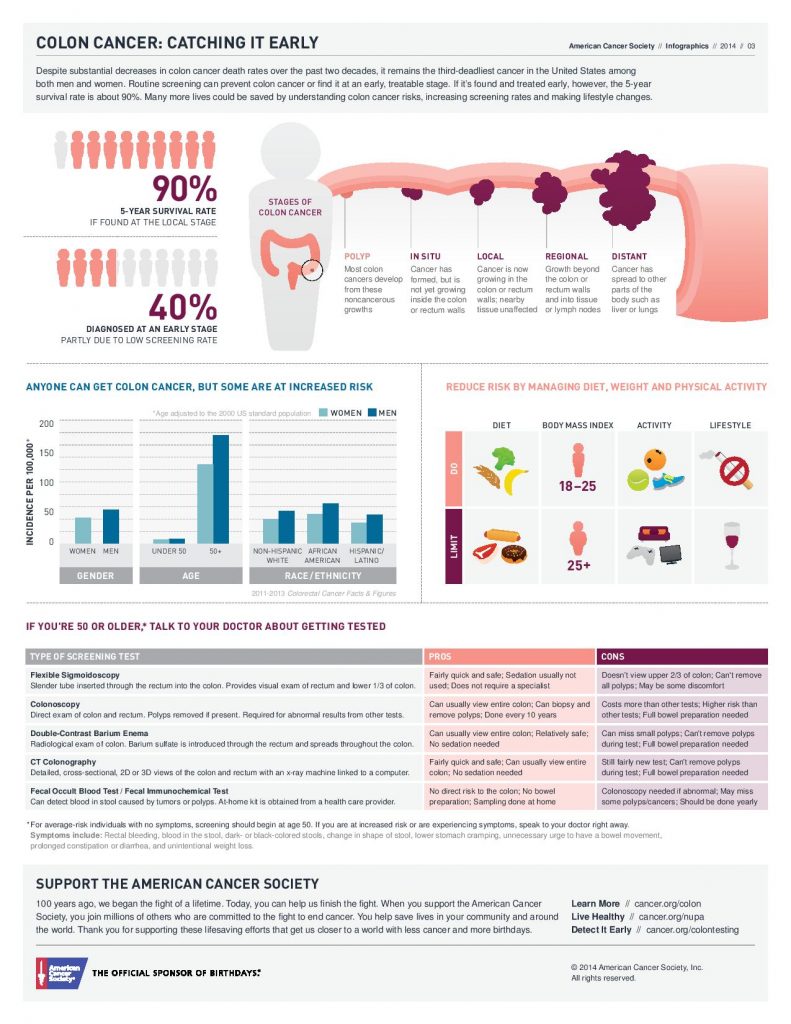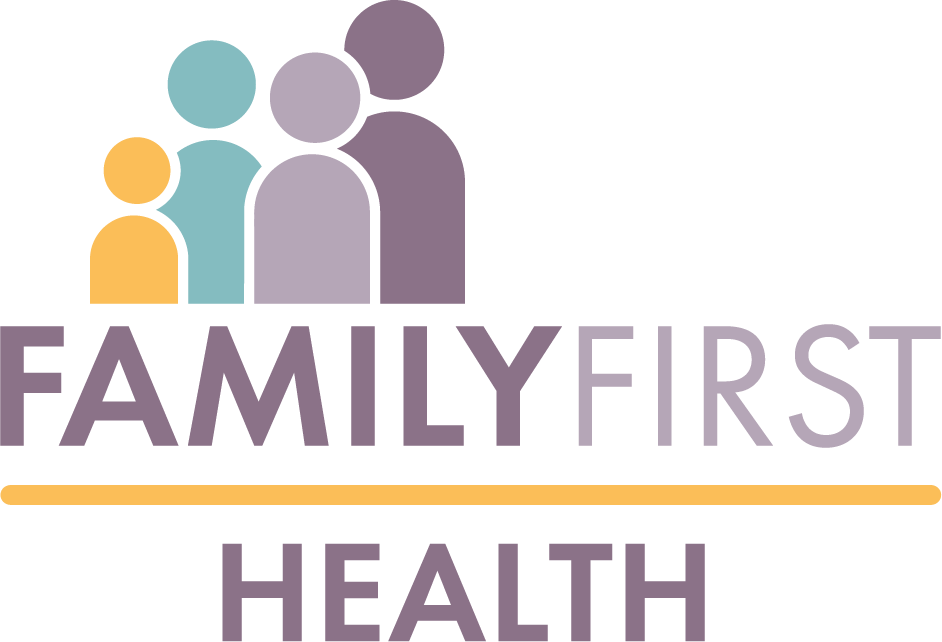March is Colorectal Cancer Awareness Month so we’re going to be dropping knowledge like …
Jokes aside, colon cancer is often treatable if caught early. Many more lives could be saved by understanding risks, increasing screening rates and small lifestyle changes.
The American Cancer Society released some information about screenings to help healthcare providers identify who they need to reach out to — and the results are very interesting.
Rates
- The rate of colon cancer in the U.S. is down 30 percent over the last decade. YAY.
- More and more people are getting screened — 56 percent of people were screened in 2002, 65 percent in 2010. Another YAY.
- And more people have insurance coverage for colon cancer screenings — making cost less of an issue. Hooray!
- BUT it’s not enough. The American Cancer Society wants to get the screening rate to 80 percent by 2018. If they can do so, that’s 203,000 lives that will be saved by 2030.
So who’s not listening?
Research has identified those who aren’t getting screened and they are:
- The newly insured
- The financially challenged
- Insured procrastinators/rationalizers
- Hispanics
- African Americans
And most of those who need screenings are between 50 and 64 years of age. Additional numbers break it down even further to say that two-thirds of those needing to be screened can fit into these categories — 50-59 years of age, uninsured, earn under $40,000 a year, Hispanic, and having less than a 4 year degree.
To reach the 80 percent goal, Pennsylvania needs to screen 1,020,300 people by 2018.
So why aren’t they listening?
Studies took a look at why some people might be ignoring the call to get screened. The answers are pretty easy to understand.
- People think they are taking care of their own health.
- They have a fear of the unknown — or the unknown prep and procedure
- They are focused on more immediate health concerns
- They’re procrastinators
- They rationalize reasons for not getting screened
- They have an “I know best” attitude.
What are the barriers to care?
We talk a lot about what is “wrong” and what the barriers are keeping people from taking charge of their own health. The Cancer Society has identified these factors — and really calls on doctors to recommend screenings to those at risk. They also push for more information about the fact that there are different options and not all people need a colonoscopy. An at-home test is something many people might be more willing to do.
- Rationalized avoidance
- Lack of affordability
- No symptoms or family history
- Negative connotations — especially to tests like colonoscopies
- No doctor recommendation
- No personal connection to cancer
- Low levels of healthy behavior.
So please, talk to your doctor to see if you’re at risk and should get screened!

